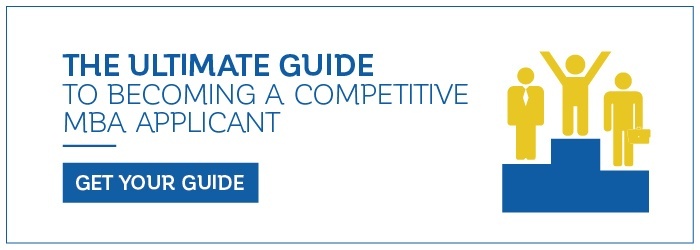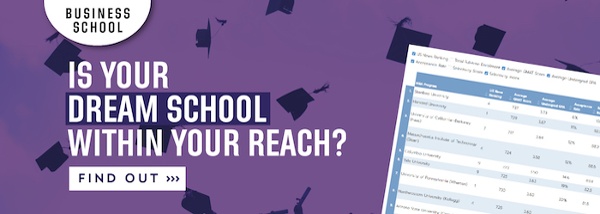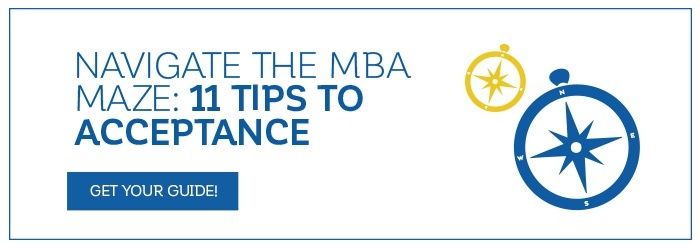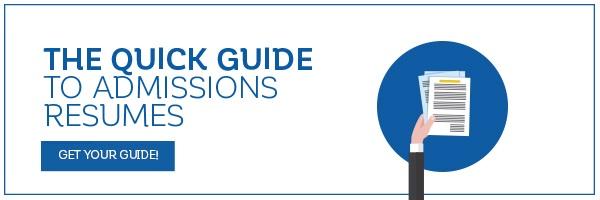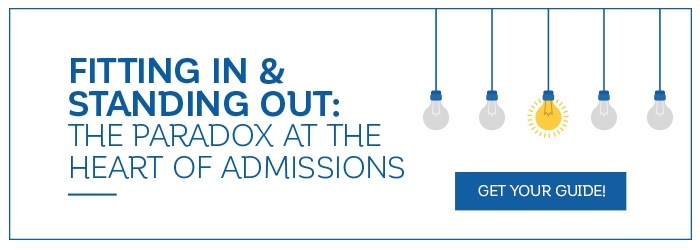

Accepted Founder Linda Abraham Provides an Inside Look at the World of Admissions [Show Summary]
For 299 episodes, Linda Abraham, founder of Accepted, has interviewed school deans, admissions directors, students, and more. Today we learn about her!
The Interviewer Becomes the Interviewee [Show Notes]
Linda Abraham: This is our 300th episode and since those round numbers seem to beg for special treatment, I decided to do something that members of my staff for several years have asked me to do: Be the interviewee.
Jen Weld, Accepted admissions consultant and former assistant/associate director of admissions at Cornell Johnson’s EMBA program is going to be the interviewer. I’m going to turn the mic over to her and climb into the hot seat.
Jen Weld: Our “guest” today, Linda Abraham, attended UCLA for both her bachelors in Political Science and her MBA. She started Accepted in 1994 as Linda Abraham & Associates. After putting up Accepted’s first web site in 1996, the company was incorporated as Accepted.com in 1997. Linda is also the co-founder of the Association of International Graduate Admissions Consultants and the co-author of MBA Admissions for Smarties. She has been sought by the media, including CBS News, The Wall Street Journal, Poets & Quants, Bloomberg Businessweek, and others for her admissions expertise.
Linda, welcome to AST!
Can you tell us a bit about your background and why you decided to start Accepted? [2:48]
When I was a senior in college there was a lot of concern about declining writing abilities based on the “nefarious influence” of television in the 1960s. UCLA, where I was a student, was increasing writing requirements for Poli Sci 1, and I was asked to be a tutor for that course. I was a Poli Sci major but also had taken a lot of English courses for a non-English major. I loved the tutoring and editing work – helping individuals clarify their ideas and get them down on paper was really rewarding to me – but I didn’t think I could make a living at it.
I am a child of immigrants, which meant that I needed a defined profession – a doctor, lawyer, or engineer, for example. My parents weren’t very happy when I graduated and I didn’t know what direction I wanted to go in, so they were relieved when I decided to go for an MBA. About halfway through the program I got married, and shortly after graduation in 1979 my husband and I started our family. In the early 90s my husband and I needed some more money to make ends meet. I had gotten my real estate license but was no longer enjoying the work, and I wanted to work from home to be more available for our six children, who at the time ranged in age from 3-12. I decided to go back to editing which I loved, and advertised in UCLA’s paper, the Daily Bruin, and got work. I was frequently asked to edit personal statements and application essays, and I’ve always loved biographies, personal stories, and historical fiction – a lot more fun than research papers! I also experimented with writing experience pieces and studied journalistic techniques. I realized that if applicants applied journalistic techniques to their personal statements and application essays, those pieces would be much more effective.
The other major development coming on to the commercial scene at the time was the internet, which removed all geographic boundaries. Initially I was able to work with people maybe 30 minutes away, and suddenly I could work with people in Hong Kong, India, anywhere! Initially we would be faxing applications back and forth. When I started applications were all paper-based, then it was disc-based, and then web-based. Similarly, the way the Accepted team and I communicated with clients evolved over time, from phone/fax to email, Skype, video conferencing, etc.
How has admissions evolved? [6:34]
One of the biggest differences is that most information about the programs was provided by the schools in the beginning. They controlled the messaging about the process. With the explosion of the internet they lost that control. Today there are multiple sources of information and information overload. The other big change is the work is increasingly international. Higher and higher test scores is another. A 700 GMAT used to be an amazing score, and the average just keeps going up and up. The same is true with the MCAT.
How has admissions consulting evolved? [10:18]
It’s grown – there are far more consultants in all fields than there were in 1996. I know I wasn’t the only one then, and I wasn’t the first, but there were far fewer. When I mentioned to people then that I wanted to focus on admissions editing people thought I was crazy for thinking I could make a business out of it, but I also didn’t have intentions to grow Accepted into a 20+ consultant business like it is today.
The Association of International Graduate Admissions Consultants (AIGAC) is another change. I worked entirely in isolation when I started Accepted. At one point I reached out to another consultant (Maxx Duffy), and we got together for lunch. We have been friends ever since. In 2004 Tuck decided to host a conference for admissions consultants, inviting me and about 20 others. It was excellent, I learned a lot, and found I really loved interacting with my colleagues. The experience was very beneficial and was the catalyst for AIGAC, which sets standards for professionalism in the industry.
The third thing is increasing acceptance of admissions consultants as part of the admissions process. When AIGAC was founded it was followed up with a session at a GMAC conference. I was one of four consultants presenting a seminar on what admissions consultants do, and frankly there was a lot of hostility towards us. That has changed, and there is now acceptance that we play a role in the admissions process. I was at the AIGAC conference last summer and the dean of Michigan Ross said, “You are our partners.” I was thrilled to hear that, and more and more that is the perception. We aren’t just helping applicants put together better applications, we also help get the facts out about schools. There are rumors, misinformation, and disinformation out there. The consultants that I know are trying to get the facts out. They really help applicants get accepted, whether by working one-on-one or through podcasts, blog posts, whatever, to help them pursue their dream careers and have a positive impact on the world.
How do the various categories of consulting differ, and how are they the same? [16:04]
What is universal is that admissions committees are attempting to meet the applicant – to go beyond the test score, GPA, and resume. They are trying to get to know a person through the application. If it’s a personal statement it is more about how they have gotten to this point. If it’s a goals essay, it’s what are your goals, how do you plan to achieve them, and how will the program help you. My advice is to just be yourself.
In terms of what’s different about graduate admissions, goals are really important in b-school admissions and most graduate specialties. Applicants need to have a goal, and a purposeful, thoughtful approach to graduate admissions.
For medical school the focus is on fitness for medicine, so clinical exposure, having worked with sick people, been in a hospital, those types of things are really important. There is less focus on long-term goals, since it is difficult to know what specialty you want before you start. Clinical exposure and an awareness of what you are getting into is distinctive to med school and health care in general.
Law school is less goals-focused. Applicants should have at least some exposure to law and an idea about how they intend to use the degree.
In terms of difficulty, med school is the most demanding process – you need strong academics, clinical exposure, community experience, and there are primary and secondary applications (with applicants often applying to 20+ schools), and interviews. Next most difficult is MBA because of the many different essay prompts, and the need to tailor to each school. Law and graduate programs require typically one statement of purpose that should be customized to each individual program, but overall their process is somewhat less demanding.
What are the most and least rewarding aspects of your work? [20:38]
The most rewarding by far is hearing from applicants who are accepted. Playing a part in changing peoples’ lives is a real perk of the job. That is what the company is about.
Conversely, the least rewarding is when clients are rejected. Fortunately, less than 20% of our clients are in that situation. I also sometimes will find it troubling when I have to tell a prospective client that it is going to be really difficult to be competitive at a program they are interested in. Some people appreciate that advice, and others think I am being negative or discouraging. I don’t like to be discouraging, but I also don’t want to take their money under false pretenses.
I know an applicant won’t get accepted when… [22:32]
……their stats are really low.
……they haven’t got a clue about what they are doing and why.
……they ask what they should write to get in.
Are there clients you refuse to work with? [23:34]
We don’ refuse to work with clients whose chances are poor, but we do inform them of our evaluation before starting work, frequently before they buy. I have told clients their chances are poor, that they need to be realistic and apply to other schools where the applicant may be a better fit, or put things on hold, take steps, and then apply. It is not my job to say I am not working with you because you are not qualified, but it is my job to work in their best interest. We will always work with a client who even after such advice still wants to go for it.
In terms of when we refuse, we always will if there is a proxy doing the work, for example a parent. We have to work with the applicant. We also have fired clients for not doing their own work, and this is very rare, for being verbally abusive.
Do you have any particularly insightful examples of clients you’ve worked with that would be particularly helpful to listeners who will be applying to programs soon? [26:01]
One client I met with early in Accepted’s history, when I was still meeting with clients one-on-one. He was pursuing a demanding program at UCLA at the time and was planning to apply to medical school. He was bright, personable, and delightful to work with. He had first gone to junior college and then transferred to UCLA. He had had an undiagnosed learning disability, and was told in high school that he would never amount to anything. By the time I talked to him he had almost a 4.0 at a very demanding program, he was very active in extracurriculars, and incredible talented. He finally was diagnosed in junior college, got accommodations, and suddenly began to soar. Last I heard he was pursuing a residency in neurology.
Another early experience was with a woman who came to work with me in my office. She was applying to law school, spoke to me about her background, and said she wanted to write about her trip to the country where her family was from, but she had never actually been there. She was convinced she hadn’t done anything terribly interesting so she wanted to make up something and write about that. I asked her if she had a background in creative writing. She said no, so I said, “Why don’t you tell me what you HAVE done and let’s see if there is something there.” She ended up writing a really fine essay that is to this day on our website, and it has nothing to do with a made-up trip to her family’s homeland.
More recently, someone worked with an Accepted med school consultant having come from a very, very disadvantaged background. We were able to help him get into medical school, and he is now an M1.
Another client was advised to postpone his medical school application and do a few more things to boost his profile. He finally applied this past June, got secondaries out really fast, and was accepted to a few programs in October. He’s thrilled.
Another recent client was an MBA applicant with excellent work experience, but with a really low GMAT. His essays were not what they should have been when he came to us, and he worked with an Accepted consultant to present his strengths effectively. He subsequently got into three M7 schools.
If you could be an admission director for a day, what would you change about the process? [34:33]
I would make the recommendations less burdensome. It may seem like an odd thing to choose, but I think the system is broken, particularly with business school. I would have common letters of recommendation, so a recommender could fill out one letter that goes to all the schools. I would limit it to two recommenders (med school sometimes has five, and with applicants sometimes applying to 20 programs – well, you do the math!). Essentially schools are demanding that applicants ask favors of people who are very busy and have multiple demands on their time. In some specialties it is fairly common and accepted for applicants to write the letter and have recommenders sign it. This is not allowed in business school and is considered improper.
If schools want authenticity from the recommenders (which is fair and legitimate), you have to make it easier for them. Law school is moving towards common letters of recommendation, med school is working on committee letters. Schools, b-schools in particular, need to make the process easier.
How do you feel about rankings? Do recruiters consider rankings? [39:06]
I think the data that rankings supply is the real value. I don’t think the actual ranking is all that useful. Rarely are rankings going to measure or reflect what is important to the individual applicant. That said, I think U.S. News is fairly good with reputational rankings. Rankings can be most relevant when you have choices. For example, if you have been accepted to two schools, one ranked 5 and the other is 25, you can most likely assume the network is better and placement is better with the number 5 school, but not when you are comparing numbers 5 and 8. Examining and evaluating career placement, curriculum, extracurricular offerings, and additional personal preferences help applicants make a better choice.
In terms of recruiters, I think they aren’t comparing #3 and #5. A program’s overall reputation is much more important. I recently interviewed the head of recruiting from Bain and rankings never came up. Recruiters will see students from certain schools consistently perform well or poorly, which will have much more influence on future recruiting than rankings.
What do you say to prospective clients who say, “If I don’t get into a top-10 school, there is no point in me going.” [42:20]
That depends where they are starting from and what they want to do. If they are a software engineer and want to move to product management, they probably need management skills to make that leap, so rankings in such a case should matter much less. If you look at GMAC data, applicants overwhelmingly say they are happy they went to business school and got an MBA. The whole top 10 thing in medical school isn’t relevant, but with law and business school it is really important. If you want to work in a specific location or state, where you go may be really important, so should factor in. But to get back to an MBA applicant who wants to go to a top 10 school (which usually has roughly 15 schools in it!) or M7, it depends where they are starting from. If someone went to Harvard undergrad and worked at McKinsey or in private equity, they probably do need to be in the top 10. But going back to the software engineer, they need what the MBA provides more than the reputation or brand, so they can probably go outside of the top 10.
Is it better to be a top student at an average school or an average student at a top school? [44:38]
It’s better to be at a school where you are going to thrive. If you are at a school where you are miserable, you are not going to do well.
Grad school is not just about a school’s overall brand. Applicants, you need to think about what you want to get out of the program and experience, and what you want to do after it.
You also need to think about cost. If you are a medical student, it is four years of tuition and living wherever you’ll be living. If you are in a high cost city, you are going to end up several hundred thousands of dollars in debt between tuition and living expenses. You might be better off in a lower-ranked program in a more affordable city or where you can live at home. The ranking for medical school is less important. Top school reputation is more important for business and law school.
How best can you determine where you will thrive? [46:19]
Look thoroughly at the schools you are considering. If at all possible visit the schools, attend an event weekend. “One school just felt right” is a common response from applicants who take the time to visit different schools. Talk to students or alums if you can. Reflect on what is important to you. Some people want to go to a new place and meet all new people. Other people want a group that is just like them, whether that be in terms of religion, ethnicity, politics, or whatever. Know if weather is important to you – factor it in. Big cities, small cities, urban, rural – whatever factors matter to you, make sure they are considered in the decision-making process.
Looking back at the 20+ years you’ve been doing this, is there anything you would have done differently? And what do you see in the future for Accepted? [49:07]
I would have started webinars sooner, the podcast sooner, and would have developed some of our service options sooner. Accepted started as an editing service, but I should have realized more quickly that we had evolved into a full service admissions consultancy.
In terms of the future, I see continued growth. This last year was Accepted’s best year ever, for the third year in a row. I see an increase in diversification in terms of the admissions markets we serve. We continue to hire consultants to serve needs in different niches.
To prospective applicants listening to this podcast, looking back at all of your experience, what is the one thing you’d like to make sure they take away from listening today? [50:50]
This is going to sound clichéd, but look at the process as an introduction of themselves to the admissions committee. Be authentic, which doesn’t mean true confessions, but presenting your best self. Also, one can almost always benefit from a coach or third party looking at an application to get some perspective, insight, and constructive criticism before your mistakes can damage your chances of acceptance.

Related Links:
• Fitting In and Standing Out: the Paradox at the Heart of Admissions, a free guide
• 7 Steps to MBA Accepted in 2020, an upcoming live webinar
• The Reapplicant’s Guide to Med School Acceptance, an upcoming live webinar
• Accepted’s Admissions Consulting Services
Related Shows:
• Focus on Fit
• 5 A’s for your Low GPA
• The Most Important Asset in Grad School Applications: Time
• Different Dimensions of Diversity
• Stand Out! A Critical Goal for Your Application
Subscribe:


Podcast Feed

Tags: Admissions Straight Talk, College Admissions, Grad School Admissions, Law School Admissions, MBA Admissions, Medical School Admissions
The post The Interviewer Becomes the Interviewee [Episode 300] appeared first on Accepted Admissions Blog.
|



